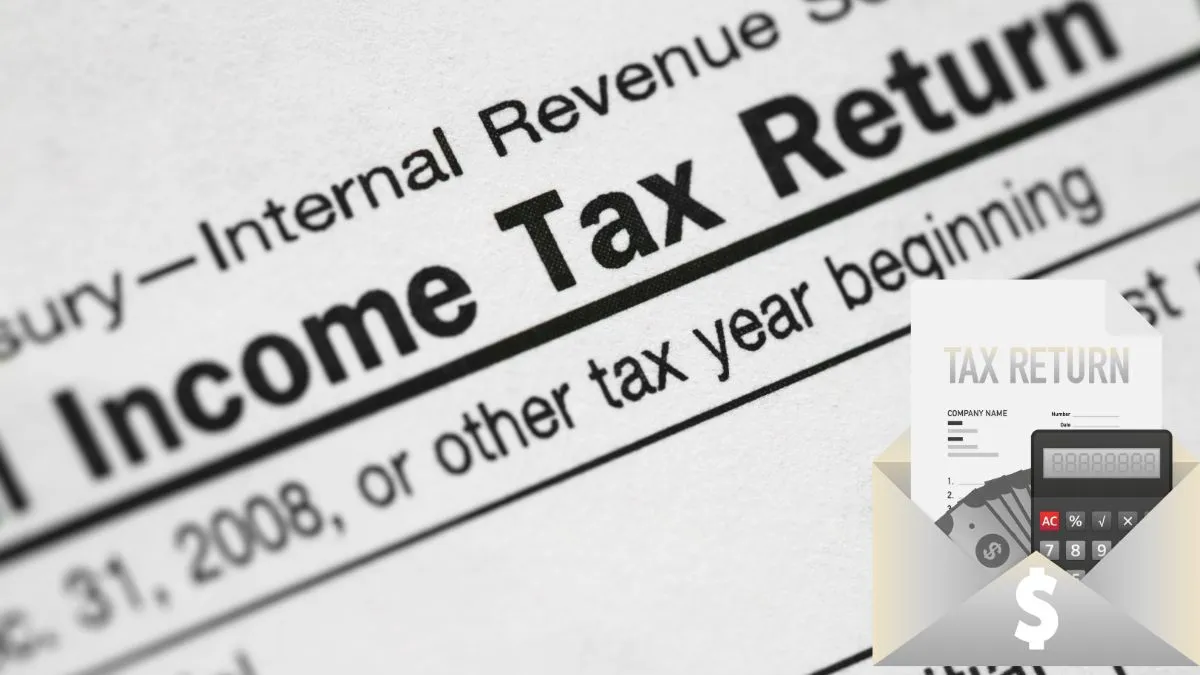- By Shreyansh Mangla
- Tue, 01 Jul 2025 05:38 PM (IST)
- Source:JND
The Central Board of Direct Taxes (CBDT) has recently extended the Income Tax Return (ITR) filing deadline for Assessment Year (AY) 2025-26, which pertains to Financial Year (FY) 2024-25, from July 31 to September 15, 2025. This extension is specifically for non-audit taxpayers, such as salaried individuals and professionals.
This extension aims to provide relief and ensure a smoother, more accurate filing experience, primarily due to recent structural changes in the ITR forms and the need for e-filing system updates. More importantly, no penal interest under Section 234A will be charged if the return is filed and self-assessment tax is paid by the new September 15 deadline. However, other advance tax penalties (Section 234B and 234C) still apply if advance tax instalments were not paid on time during FY 2024-25.
ITR Filing 2025: Here's How You Can File Your ITR?
Income Tax Return Filing: Steps
Step 1: First, gather the following documents before you start:
-Aadhaar and PAN cards
-Form 16 (if salaried)
-Bank account details
-Interest certificates (from bank/post office)
-Investment proofs (for deductions like 80C, 80D, NPS, etc.)
-Form 26AS and Annual Information Statement (AIS) (downloadable from incometax.gov.in)
-Capital Gains statements from brokers/mutual fund houses (if applicable)
Step 2: Go to incometax.gov.in and log in.
1. Go to https://www.incometax.gov.in.
2. Click on "Login."
3. Enter your PAN as your User ID and password. (Reset if necessary.)
Step 3: Select the correct ITR form based on your income sources for the Financial Year 2024-25
ITR-1 (Sahaj): For resident individuals with total income of up to Rs. 50 Lakh. This includes income from:
-Salary or pension
-One house property
-Other sources such as interest, family pension, or dividend
-Agricultural income up to Rs. 5,000.
-New for AY 2025-26: Can now include Long Term Capital Gains (LTCG) under section 112A up to Rs. 1.25 lakh from the sale of listed equity shares or equity-oriented mutual funds, provided there are no brought forward or carry forward capital losses.
ITR-1 cannot be used by a person who: is a Director in a company, has held any unlisted equity shares at any time during the previous year, has any asset (including financial interest in any entity) located outside India, has signing authority in any account located outside India, has income from any source outside India, is a person in whose case tax has been deducted u/s 194N, is a person in whose case payment or deduction of tax has been deferred on ESOP, has any brought forward loss or loss to be carried forward under any head of income, or has total income exceeding Rs. 50 lakhs.
ITR-2: For individuals and Hindu Undivided Families (HUFs) who do not have any income from business or profession. This form is applicable if you have:
-Salary or pension
-Income from more than one house property
-Capital gains (short-term or long-term, including those exceeding the ITR-1 limit or from sources not covered by ITR-1)
-Foreign income or assets
-Agricultural income exceeding Rs. 5,000
-Are a director in a company
-Have invested in unlisted equity shares.
ITR-3: For individuals and HUFs having income from profits and gains of business or profession (and not opting for presumptive taxation), or who are partners in a firm. This also applies if you are not eligible for ITR-1, ITR-2, or ITR-4.
ITR-4 (Sugam): This is filed by resident individuals, HUFs, and partnership firms (other than LLPs) with a total income of up to Rs. 50 lakh, and those who have income from business or profession, opting for presumptive taxation under section 44AD, 44ADA, and 44AE. It also covers income from salary/pension, one house property, and other sources (excluding winnings from lottery or racehorses, and agricultural income exceeding Rs. 5,000).
New for AY 2025-26: Can now include Long Term Capital Gains (LTCG) under section 112A up to Rs. 1.25 lakh from the sale of listed equity shares or equity-oriented mutual funds, provided there are no brought forward or carry forward capital losses.
ITR Filing 2025: Important Dates
-ITR Filing Deadline for Individual Taxpayers (not subject to audit): September 15, 2025 (extended from July 31, 2025).
-Deadline for Businesses subject to audit: October 31, 2025.
-Deadline for Businesses requiring transfer pricing reports: November 30, 2025.
-Deadline for filing Belated/Revised Returns: December 31, 2025.
